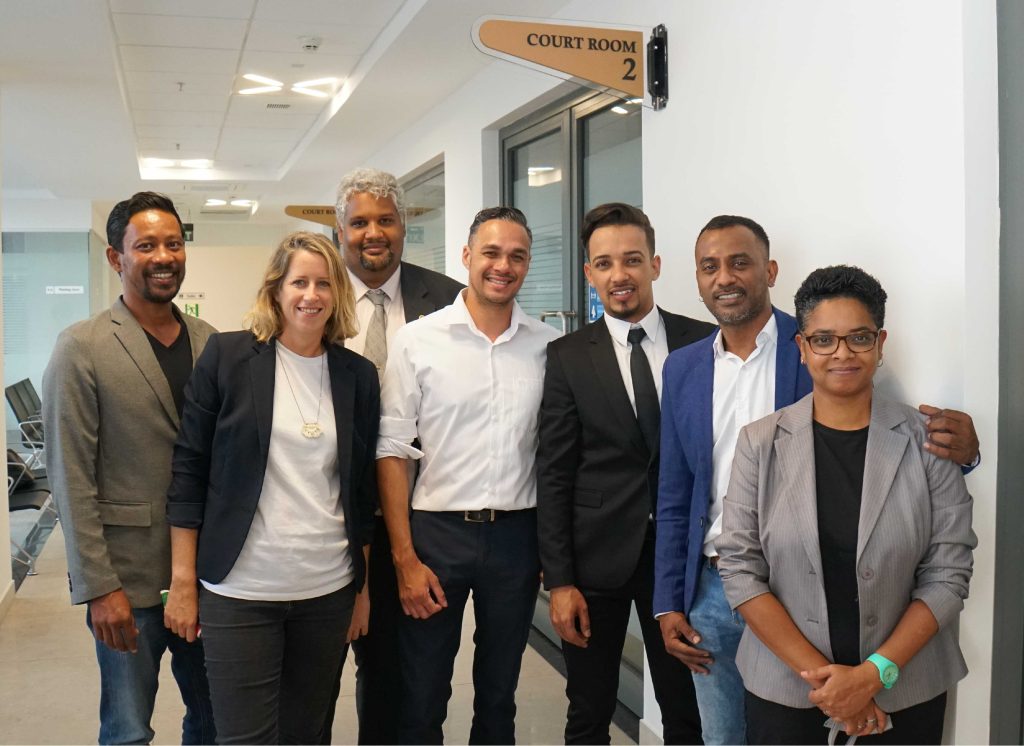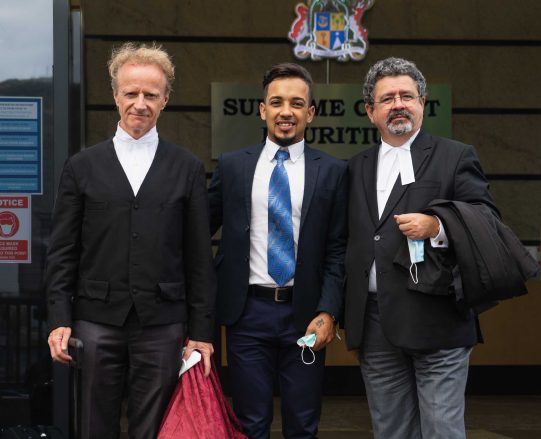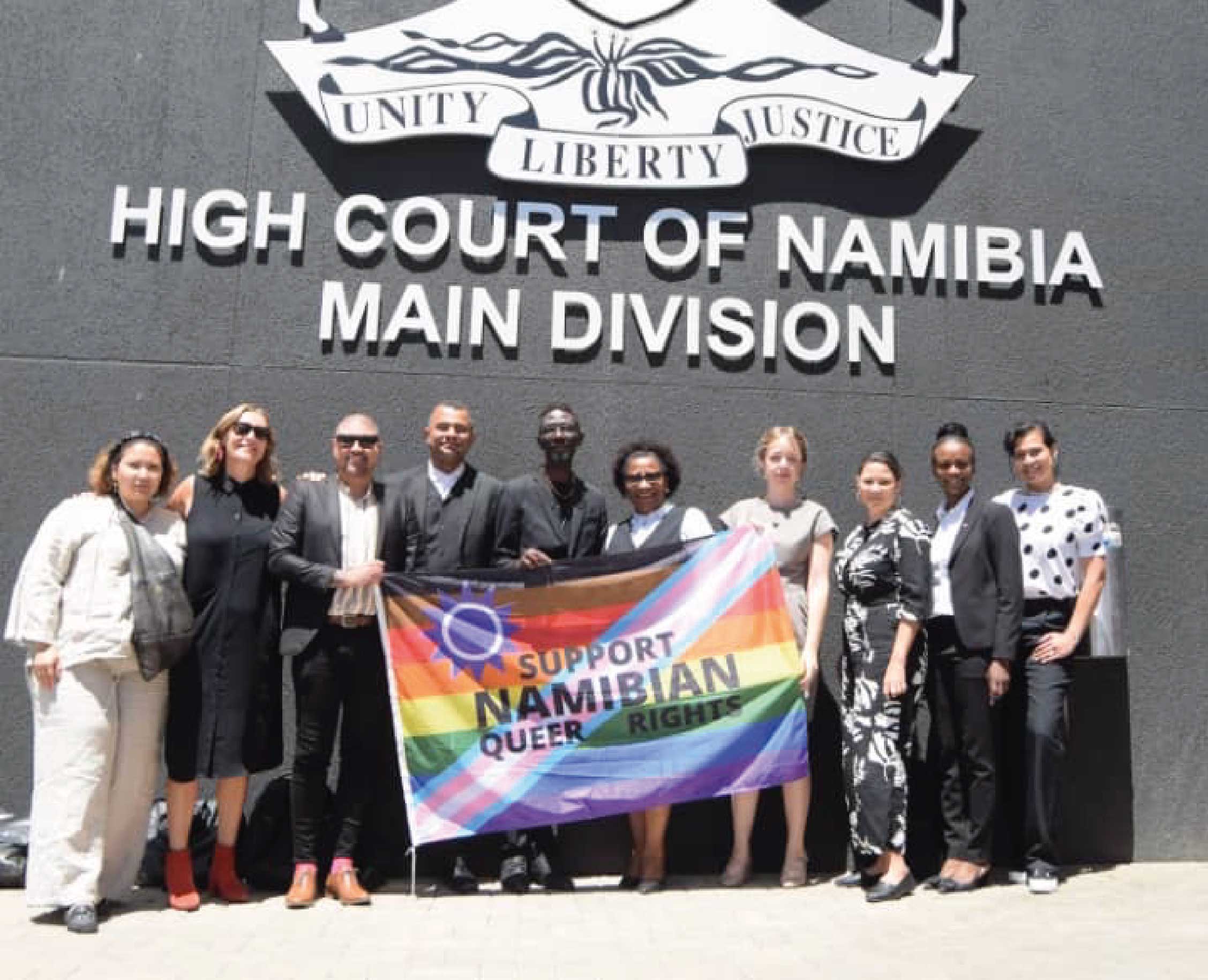Today’s decision by Mauritius’ Supreme Court declaring a law that criminalised same-sex intimacy between men unconstitutional is a momentous victory for human rights, says the Human Dignity Trust.
In the judgment, the Supreme Court judges underlined the constitutionally protected right to non-discrimination, stating, ‘…are there any valid reasons for the State to discriminate against the plaintiff having sexual intercourse in the only way available to him? The present case concerns the most private and intimate aspects of the identity of homosexual men, namely the manner in which they have sexual intercourse. Accordingly, there must exist particularly serious reasons for the State to justifiably interfere with the manner in which homosexual men choose to have consensual sexual intercourse in private.’
This decision finally topples 185 years of state-sanctioned stigma against LGBT people in Mauritius and sends yet another important message to the remaining criminalising countries in Africa and beyond: these laws must go.
‘The Trust applauds this decision, as well as the ongoing work of the government to reform wider sexual offence laws to eliminate discrimination and provide proper protection against all sexual violence. We are delighted to have supported Ryan, his local legal team and the Collectif Arc-en-Ciel in this landmark case and we congratulate them for making Mauritius a better place for all citizens.’
The case, brought by Abdool Ridwan (Ryan) Firaas Ah Seek with the support of the Human Dignity Trust, challenged the constitutionality of Section 250 of the Mauritian Criminal Code, which dated back to 1838. The provision criminalised ‘sodomy’ and anyone convicted could face a maximum penalty of five years’ imprisonment.

Caption: Ryan with members of CAEC at the Supreme Court in November 2021.
The law was inherited from the British during the colonial period, in which the English criminal law was imposed upon Mauritius, and was retained upon independence in 1968, only shortly after the corresponding law was removed from the statute books in England in 1967.
In their reasoning the judges also overtly recognised the legacy of colonial-era laws, remarking that, ‘Section 250 was not introduced into Mauritius to reflect any Mauritian values but was inherited as part of our colonial history from Britain. Its enactment was not the expression of domestic democratic will but was a course imposed on Mauritius and other colonies by British rule.’
‘Receiving this judgment in my favour is an enormous relief. From today, as a citizen and a human being, I am now free to love whoever I want to without fear. Above all, it also means that the next generations can fully and freely embrace their sexuality without fear of being arrested. This victory is undoubtedly a major step towards the full inclusion of our community in Mauritian society,’ says Abdool Ridwan (Ryan) Firaas Ah Seek, the plaintiff and current president of the Collectif Arc-en-Ciel.
‘I wish to express my thanks to my legal team and am also immensely grateful to the Collectif Arc-en-Ciel and the Human Dignity Trust for their support over the past four years. This is truly a collective victory.’
The case was originally filed at the Supreme Court in 2019.
‘This victory brings the number of jurisdictions that still criminalise LGBT people to 65. Mauritius now joins other African nations such as South Africa, Botswana, Seychelles, Angola and Mozambique in eradicating similar colonial-era criminalising provisions from their lawbooks,’ added Téa Braun.
Notes to Editors
- The Human Dignity Trust works with LGBT activists around the world to defend human rights in countries where private, consensual, same-sex sexual activity is criminalised. We provide free legal assistance to local organisations that are challenging laws that persecute people on the basis of their sexual orientation and/or gender identity.
- See the full judgment from the Supreme Court. A case digest will shortly be available on HDT’s website.
- The Collectif Arc-En-Ciel (CAEC) is the largest and longest-standing organisation in Mauritius championing the human rights of LGBT people and an interested party in this case.
- Abdool Ridwan Firaas (Ryan) Ah Seek is represented by a Mauritian legal team composed of Gavin Glover SC, Yanilla Moonshiram, barrister-at-law, and Komadhi Mardemootoo, attorney-at-law, with support from the Human Dignity Trust, Tim Otty KC (founder of the Human Dignity Trust), Isabel Buchanan and international law firm Herbert Smith Freehills.
- Visit the Human Dignity Trust’s interactive map to see which countries across the world continue to criminalise LGBT people.
For more information or to arrange interviews contact:
Emma Eastwood, Head of Strategic Communications, HDT
E: emmaeastwood@humandignitytrust.org
Twitter: @HumanDignityT




